Digital Economy and Youth Employment in Nigeria: Nexus, Challenges and Opportunities

By
Olaogun Michael Sunkanmi
The digital revolution is reweaving the very fabric of economies across the globe and decentralizing the marketplace, where businesses of all sizes, from tech giants to one-person and where startups, interact seamlessly with a global audience. This web, powered by the invisible threads of Information and Communication Technologies (ICTs), is the digital economy. In Nigeria, a nation pulsing with youthful energy and entrepreneurial zeal, this metamorphosis promises golden opportunities. It is an opportunity to vanquish the invasive scourge of youth unemployment, a specter that has long haunted the nation’s prospects. However, the journey to a digital solution is complex. It is one laced with difficulties, requiring creative solutions and a collaborative spirit.
Discussing the complex relationship between the digital economy, youth employment, and ultimately the possibility of sustainable job creation in Nigeria is important. Only by making sense of this complex picture can we imagine a future where Nigeria’s youthful workforce can not only find gainful employment but also flourish to become a driving force for the nation’s economy.
The digital economy is a rapidly changing tapestry of a global business dynamic web-woven together by tendrils of innovation, connection, and opportunity. At its very core, it is a multifaceted fabric woven from the threads of data and goods, winding its way across the boundaries of established norms and new theoretical possibilities. It is an irony that Nigeria faces a paradox—its massive youth population is full of promise yet majority lives unfulfilled and hamstrung by inactivity. The figures are disheartening—60% of its population is aged 25 years or less, with swathes of young people dreaming of welling up across digital lines. While the background reads from a depressing narrative, a bright neon light glistens—the emerging digital economy.
The State of the Nigeria’s Economy: A Prospect for a Thriving Digital Economy
Nigeria, a resource-rich country entangled in a web of economic woes, struggles in the sun-drenched heart of West Africa. The nation’s hopes are clouded by the World Bank’s dismal estimate of 3.2% real GDP growth for 2023. Though deserving of applause, this slight improvement is still insufficient to handle the flood of young Nigerians entering the job market. Imagine a young, energetic group of people who are ready and willing to take advantage of opportunities. Imagine their goals resonating across the digital barrier. Unfortunately, 42.6% of them are still unemployed, which stifles their potential and leaves their gifts hidden.
The digital economy has sprung from the ashes of tradition, resembling a phoenix. Its reach extends throughout cyberspace, creating a network of linked companies and services. The foundation of Nigeria’s digital renaissance is made up of the rapidly expanding e-commerce sector, the cinematic appeal of the film industry, and the rapidly growing business process outsourcing (BPO) industry. Nigeria, the Africa’s biggest digital market, saw venture capital investments totaling more than US$660 million in 2019 alone. Once an abstract idea, the digital world is today teeming with actual prospects for economic emancipation and employment development.
However, there are challenges along the way on this journey into the digital frontier. Change brings with it both opportunity and danger. Shadows of infrastructure holes continue to appear. Like a compass, digital literacy points the way, but its unequal distribution raises the possibility that some people will get lost.
A strong vessel such as the private-public partnership has to steer toward inclusive employment by bridging the skills gap and riding the wave of digitalization. Emerging nations such as Nigeria as well as Kenya, South Africa, and Egypt have set out to employ young people through technical education and online job skills. However, there are still unexplored waters, and these efforts may not be successful.
Unpacking Nigeria’s Journey towards a Digital Economy: Where are we?
In Nigeria, the promise of the digital economy is dimly lit, but realizing its full potential would entail facing a complicated reality: a divided digital environment. For young Nigerians, these divisions create a “minefield” where opportunities and access are not equitably dispersed.
The generational difference is one glaring divide. Dubbed “digital natives,” younger Nigerians have spent their whole childhood immersed in technology. Their ability to use social media, online learning resources, and e-commerce platforms is second nature to them. But not everyone is as at ease with technology as others are. Older folks may find themselves on the wrong side of the digital chasm, especially if they live in rural regions or come from less affluent families. They have trouble with basic computer literacy, do not have access to the required technology, and sometimes they may feel anxious or left out of the digital world. Their lack of digital literacy might prevent them from taking advantage of the very opportunities presented by the digital economy, making it more difficult for them to engage in online markets or obtain necessary government services.
The class gap adds to the landscape’s complexity. It is common for people from affluent families to have exclusive access to technology and training. Young individuals from low-income homes might not have the money to buy tablets, cell phones, or dependable internet access. Moreover, the expense of high-quality digital literacy training programs can be beyond their means. This widens the digital divide and maintains the disparities that already exist. Rich kids can succeed in the digital sphere, but kids from low-income families cannot keep up and find it difficult to compete in the digital labor market.
The digital gap is a social issue in addition to an economic one. There are more obstacles for marginalized populations, such as women living in rural regions or those with impairments. Their access to technology and education may be restricted by cultural norms or societal expectations. Likewise, the absence of modifications to infrastructure may prevent people with impairments from fully engaging in the digital sphere. A growing number of Nigerian youngsters fear that they will be left behind in the digital age by this growing socioeconomic division. Sustainable employment development for everyone remains a pipe dream in the absence of coordinated initiatives to close this gap.
We are at a turning point in history as the digital dawn of Nigeria dawns. There is a need to collectively create a new story in which the digital economy serves as a means of generating long-term employment opportunities and where the hands that build our future are empowered by bytes and algorithms. We will travel these unexplored waters together, guiding toward success and planting our dreams firmly in the rich soil of opportunity.
Artificial Intelligence in Nigeria’s Digital Economy: An Insight into its Potentials
The digital revolution is fueled not just by increased internet connectivity and mobile phone penetration, but also by the burgeoning potential of Artificial Intelligence. AI applications have the potential to revolutionize various sectors within the Nigerian digital economy, creating new opportunities and fostering economic growth. Here are some specific examples:
AI can personalize the shopping experience for online consumers, recommending products based on past purchases and browsing behavior. This can increase customer satisfaction and loyalty, driving sales for e-commerce businesses. Additionally, AI-powered logistics and delivery systems can optimize routes and streamline operations, leading to faster and more efficient deliveries. It can be used to develop sophisticated fraud detection systems, protecting both financial institutions and consumers from financial cybercrime. AI can also power chatbots for customer service, providing 24/7 support and streamlining communication.
Furthermore, AI can be used for credit scoring, enabling financial institutions to assess loan eligibility more accurately and efficiently, and promoting financial inclusion for previously underserved populations. AI applications can analyze satellite imagery and weather data to provide farmers with insights into soil conditions, crop health, and optimal planting times. This data-driven approach can lead to increased yields and improved agricultural productivity. Similarly, AI-powered drones can be used for precision agriculture tasks like crop monitoring and pesticide application, reducing waste and optimizing resource utilization. We can level the playing field and provide equal opportunity for every young Nigerian to succeed in the digital economy by recognizing these complex disparities and putting focused solutions in place.
Olaogun Michael Sunkanmi, a public and policy analyst, can be reached via michaelolaogun2014@gmail.com





